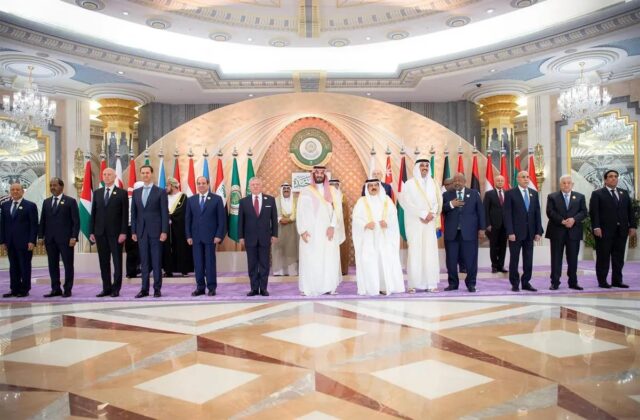The Arab League’s 32nd summit culminated with the adoption of the Jeddah Declaration, reaffirming the need for unity in achieving peace and stability.
There were 22 member countries represented by heads of state and government, as well as five observer countries, at the pan-Arab summit. After taking over the rotating leadership from Algeria, the Kingdom of Saudi Arabia is hosting the meeting.
The summit, which met in Jeddah, reviewed various issues, including the Palestinian-Israeli issue and events in Sudan, Yemen, Libya, and Lebanon. There was also the participation of Syria for the first time in over a decade. The declaration congratulated Syria on its readmission to the Arab League (AL) and promised to further pan-Arab efforts to assist Syria. Following years of isolation, the bloc welcomed Syria’s readmission to the Arab League and expressed optimism that this action would contribute to “Syria’s stability and unity.”
On the Palestinian-Israeli issue, the members underlined the Palestinian cause’s centrality and repeated Palestine’s right “to complete control over all territories conquered in 1967, including east Jerusalem.”
The members also emphasized the significance of “activating the Arab Peace Initiative,” which was sponsored by the Kingdom and approved by the Arab League at the Beirut summit in 2002. Saudi Foreign Minister Prince Faisal bin Farhan Al Saud said at a news conference to brief on the summit that the Jeddah Declaration will strengthen cooperative Arab work.
AL Secretary-General Ahmed Aboul-Gheit emphasized the summit’s achievement in meeting its objectives, expressing hope that it would be a starting point for Arab countries to take control of their destiny.
Concerning Yemen, the Arab League reiterated its support for all international and regional efforts to find a political solution for the country.
At a meeting of Arab foreign ministers in Jeddah on May 17, Algerian Foreign Minister Ahmed Attaf handed over the presidency to the Kingdom’s Foreign Minister, Prince Faisal bin Farhan. The Kingdom will expand Arab-Arab cooperation in a variety of cultural, social, economic, and environmental fields.
These programs include teaching non-native speakers Arabic and focusing on the children of second-and third-generation Arab immigrants in order to improve communication between Arab countries and the rest of the world.
Another program aims to maintain fundamental food commodity supply chains in Arab countries. It will be achieved in various ways, including by providing investment possibilities with economic and financial viability and contributing towards achieving food security for the Arab world.









